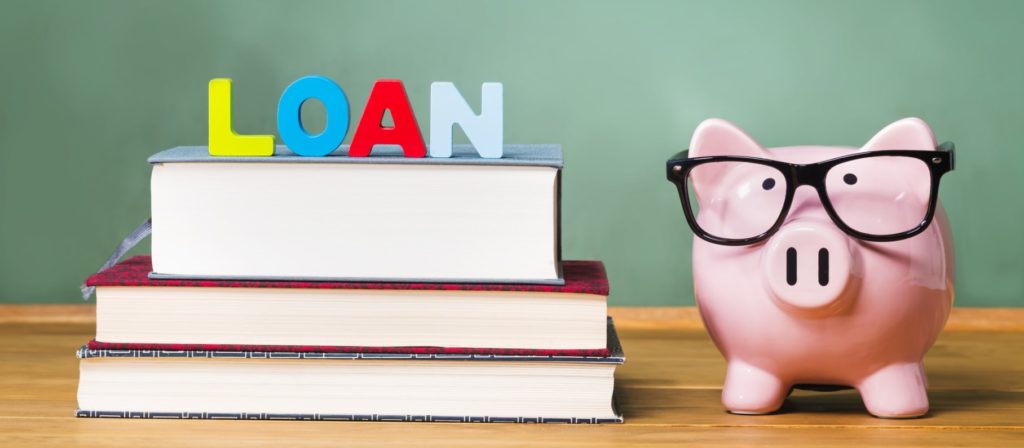Do you have student loans? Are you having trouble repaying them?
You aren’t alone. About 42 million Americans have student loans. That’s about 1 in every 8 Americans.
Having to repay student loans is challenging. But, there’s good news for those who can’t afford their student loan payments. A forbearance on student loans can help.
If you need one, you must read this article. Read on to determine if this option is right for you.
What Is a Student Loan Forbearance?
Lately, you might have been hearing the word “forbearance” a lot in the news. The Biden administration has been focusing on extending the forbearance. There’s a pause on student loan payments, so those who qualify get to experience some relief.
What exactly is student loan forbearance? It’s a program that allows you to halt your student loan payments. This is an option available temporarily.
One can take advantage of forbearance for a few months at a time. However, there’s a limit to how much forbearance one can use during their lifetime. These are aspects you should be aware of before you seek to apply for one.
If you get approved for a forbearance, you get a break from having to make monthly payments. Forbearance doesn’t put a pause on the loan’s interest. It’ll still accrue, so make a note of this.
You can pay the interest as it accrues. There’s another option you can choose. You can let it accumulate and capitalize at the end of the forbearance period.
What happens if you choose the second option? The government will add the interest to the principal loan balance. This means that the amount of interest you pay may be higher over the life of your loan.
When Student Loan Forbearance Makes Sense
You might be asking, “Is a forbearance on student loans right for me?” It’s a necessary option for borrowers who have trouble repaying their student loans.
This is an issue for many Americans who have to repay their federal student loans. About 80% of Americans delay meeting key life milestones as they must repay their loans. For example, they can’t buy a home or save for retirement because of their loans.
If this describes your situation, forbearance may make sense for you. However, there are different situations when forbearance may be an ideal option.
Are you no longer working due to a layoff? If you can’t make monthly payments, forbearance can pause the payments for a few months.
Is an injury not allowing you to work, or is it causing you to have a lower income? A forbearance is an option if you’re facing this specific scenario.
The same applies if you’re taking care of a sick family member. You can seek forbearance if you can’t work due to this responsibility. It’ll pause the payments when you’re with your sick relative.
Are you part of the National Guard? If you’re told you have to deal with a disaster, you should consider applying for a forbearance.
The Different Types of Forbearance Programs Available
Now that you know how forbearance works, it’s time to go over the different options available.
There are several forbearance programs for federal student loans. The program is chosen at the discretion of your loan servicer.
One option is a general forbearance or a discretionary forbearance. This option is ideal for borrowers experiencing financial hardship. It might be best for you if you’re in between jobs or are undergoing medical treatment.
This option covers Direct, Federal Family Education Program, and Perkins Loans. Your loan servicer can grant it for up to 12 months at a time. There’s a limit of three years.
Mandatory forbearance is for a specific set of borrowers. For example, borrowers in an AmeriCorps position with a national service award can apply for one.
Persons serving in the Department of Defense Student Loan Repayment Program can apply. Those who are part of a medical or dental internship or residency program can apply.
Do your loan payments exceed 20% of your total monthly gross income? If this is the case, you should apply for mandatory forbearance.
Teachers performing a teaching service can also take advantage of this option. It serves as a form of loan forgiveness.
How to Apply for Forbearance
To apply for forbearance, you’ll need to visit the government student aid website. Fill out the appropriate form and gather documents that support your case.
Inform your student loan servicer that you applied for forbearance. Submit the form.
Make sure to continue making regular payments until forbearance is approved. If you need an extension, you can reapply.
What To Do if You Don’t Qualify for Forbearance
What if you don’t qualify for forbearance? It doesn’t have to be the end of the world. There are other options you can seek to experience loan relief.
You can discharge your student loan debt into bankruptcy. You’ll have to declare bankruptcy to start this process.
Part of the process involves filing a lawsuit. In addition, you’ll need to establish undue hardship.
Doing this isn’t easy. Finding success is tricky as you must meet specific criteria to qualify.
If you plan to seek student loan forgiveness in bankruptcy, there’s one thing you must do. You’ll need to hire a student loan debt attorney. This type of attorney can take on your case and help improve your chances of winning.
Your Guide to Understanding Forbearance on Student Loans
Got student loans you have to repay? Repaying federal student loans can be challenging. If you can’t afford student loan payments, you should apply for forbearance on student loans.
If you don’t qualify for one, you should consider declaring bankruptcy. Contact us to learn more about this option. You can schedule a free, confidential consultation to discuss your case with one of our attorneys.

